Paying the price: Gulf eyes Iranian gas as Pakistan delays imports
Oman inks $60 billion deal, Kuwait also plans to buy gas from Tehran
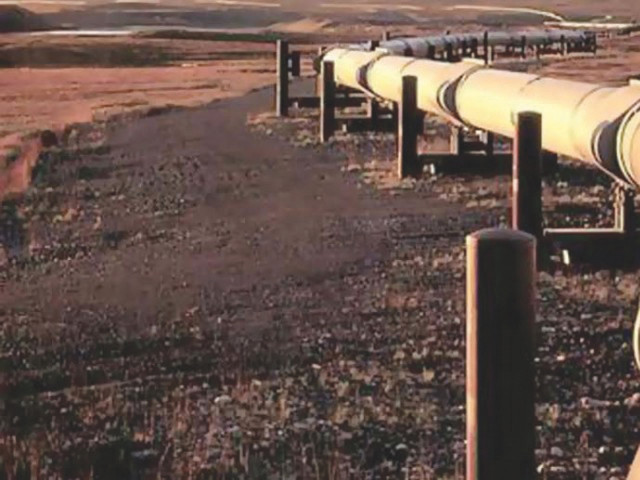
Paying the price: Gulf eyes Iranian gas as Pakistan delays imports
The real war between Iran and the United States, which is supported by many European countries, appears to be over energy supply deals. Under some projects, Iran will be connected to European states, Oman, Iraq and Kuwait by sharing its vast energy reserves.
Iran and Oman have sealed a $60-billion agreement under which Muscat will purchase natural gas from Tehran over the next 25 years. The project includes laying a pipeline costing $1 billion across the Gulf.
The agreement was reached during the visit of Iranian President Hassan Rouhani to Muscat in March this year. Around 50% of the gas to be exported to Oman, will be transported onwards to Japan, South Korea and India.

In June, Kuwait became the second country in the Gulf that announced its desire to buy natural gas from Iran, which sits on one of the largest gas reserves in the world.
The eagerness for energy cooperation comes in the backdrop of a historic deal between Iran, the US and five other world powers over the former’s nuclear programme on November 24 last year. Iran accepted strict constraints on the nuclear programme for the first time in a decade in exchange for partial relief from sanctions.
Later in December, Turkish Energy Minister Taner Yildiz said in a statement Iran was planning to lay a pipeline to ship gas to European nations that were interested in imports. If the programme is agreed and the US and other world powers reach some arrangement with Iran, Pakistan’s long-standing hopes of importing Iranian gas may be finally buried.
The Iran-Pakistan (IP) gas pipeline has been stuck for years in the wake of US threat of sanctions. Though Islamabad sought some concessions from the US to clear the way for building the pipeline, but the request was rejected outright.
The deadline – December 2014 – for the start of gas flow under the IP project is approaching fast and Pakistan may face penalties of millions of dollars every day in case of failure to complete its part of the pipeline. Iran has laid its portion of the pipeline.
In place of Iranian gas imports, the US has suggested that Pakistan should consider purchasing liquefied natural gas (LNG) from Qatar and other sources, but it is not a cheaper source of energy.
Crucial talks in Sept
The PML-N government, however, is trying to make some arrangements with Iran to win an extension in the deadline and keep the project alive. The two sides are expected to meet next month to discuss some important proposals, which may pacify the Iranian government, which is upset over failure of Islamabad to start work on the project.
Pakistan insists that it could not press ahead with the project due to the lingering threat of sanctions. Now, it has proposed to Tehran to construct the pipeline from the Gwadar Port under the guise of LNG export, which could be connected to Iran after the sanctions are lifted.
According to an official assessment, the gap between demand and supply of gas is widening in Pakistan and production is expected to drop to about half the existing levels by 2020 if new reserves are not tapped and output is not increased from existing fields.
Gas production will fall from the current 4.47 billion cubic feet per day (bcfd) to 2.53 bcfd in 2019-20 if fresh supplies are not injected into the system.
Experts are of the view that Pakistan should tackle the issue strategically and take it up again with US authorities. They ask why Islamabad is being pressurised when other countries are clinching deals with Iran.
These countries have made economic policies part of their foreign policies and Pakistan should also follow them in securing energy supplies. Otherwise, it will lose an opportunity to secure cheaper gas imports and its economy will collapse under the weight of energy shortages.
The writer is a staff correspondent
Published in The Express Tribune, September 1st, 2014.
Like Business on Facebook, follow @TribuneBiz on Twitter to stay informed and join in the conversation.

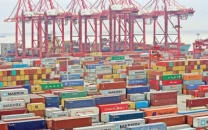
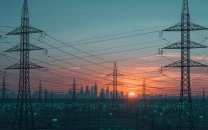
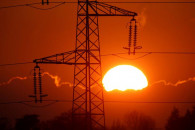


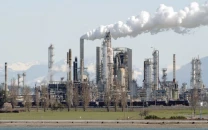



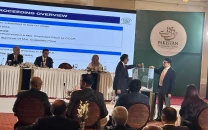

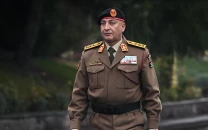






COMMENTS
Comments are moderated and generally will be posted if they are on-topic and not abusive.
For more information, please see our Comments FAQ